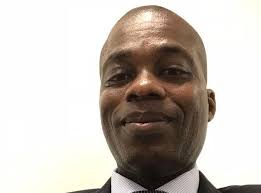
Audio By Carbonatix
Research Fellow at the Centre for Democratic Development (CDD-Ghana), Dr Kwame Sarpong Asiedu asserts that Ghanaian society has not yet fully addressed the issue of emergency management.
According to Dr Asiedu, the country's healthcare emergency system must be adept at managing crises—knowing when, how, and what actions to take during emergencies, which often require immediate and decisive intervention.
In an interview with Joy FM’s Super Morning Show on Tuesday, Dr Asiedu highlighted the critical gaps in public awareness and education regarding emergency response. “I ask myself, does the average Ghanaian know how to identify an emergency? As a society we have not scratched the surface of emergency management. For instance, if someone is having a stroke, are we educating citizens to recognise the signs and respond appropriately? Do they know when to call an ambulance, how to perform CPR, and what emergency equipment is available in their community? Can they effectively communicate with the ambulance team and provide crucial information about the emergency until help arrives?" he questioned.
Dr Asiedu emphasised the importance of swift action in emergencies, noting that, "In the UK, the average ambulance response time is four minutes. They have rapid response teams using cars that aim to arrive within one minute and thirty seconds, and these teams are highly skilled. They rush to the emergency scene to provide immediate assistance."
He also stressed the collective responsibility in emergency management, saying, "We should not leave this solely to the National Ambulance Service. We are all involved when it comes to emergencies. Healthcare is a vocation, and skill is essential. If people have not had training in the last two years, what will happen? This is a concern the state must address.”
Dr Asiedu pointed out that many emergency practitioners in Ghana have not received standard training in recent years, based on official state documents.
He warned, "If someone is being transported to an emergency facility where most practitioners haven't had recent training and lack guidelines, the issue becomes a mix of problems.”
In conclusion, Dr. Asiedu called for a comprehensive approach to emergency management, involving public education, regular training for healthcare professionals, and a coordinated effort to improve the overall emergency response system in Ghana.
Latest Stories
-
Some OMCs reduce fuel prices; petrol going for GH¢10.86, diesel GH¢11.96
21 minutes -
Trump says health is ‘perfect’ amid ageing concerns
44 minutes -
China’s BYD set to overtake Tesla as world’s top EV seller
47 minutes -
Joy FM’s iconic 90’s Jam returns tonight: Bigger, better, and packed with nostalgia
1 hour -
Uproar as UG fees skyrocket by over 25% for 2025/2026 academic year
3 hours -
Japan PM joins fight for more female toilets in parliament
3 hours -
Ga Mantse declares war on fishing industry child labour
4 hours -
Adom FM’s ‘Strictly Highlife’ lights up La Palm with rhythm and nostalgia in unforgettable experience
5 hours -
OMCs slash fuel prices as cedi gains
6 hours -
Around 40 dead in Swiss ski resort bar fire, police say
7 hours -
AFCON 2025: Aubameyang and Nsue make history among oldest goalscorers
8 hours -
AFCON 2025: How Kwesi Appiah’s Sudan qualified for round of 16 without scoring any goal
9 hours -
Ghana is rising again – Mahama declares
9 hours -
Firefighters subdue blaze at Accra’s Tudu, officials warn of busy fire season ahead
9 hours -
Luv FM’s Family Party In The Park ends in grand style at Rattray park
9 hours

